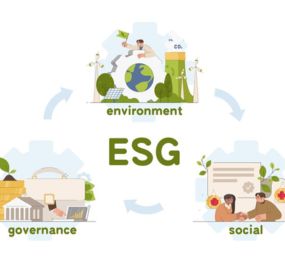Environmental, Social, and Governance (ESG) integration has emerged as a critical framework for companies aiming to strike a balance between profitability and social responsibility. It represents a strategic shift in the corporate world, emphasizing the importance of sustainability, ethics, and accountability in decision-making.
ESG integration involves incorporating ESG factors into a company's core business strategy, operations, and investment decisions. It goes beyond the traditional bottom line to consider broader impacts on the environment, society, and governance practices.
One of the primary drivers of ESG integration is the recognition that sustainable practices can lead to enhanced financial performance. Companies that actively engage with ESG considerations often enjoy lower operational risks, improved reputation, and increased access to capital. They also tend to attract socially conscious investors, resulting in a competitive advantage in today's market.
Furthermore, ESG integration is closely linked to long-term sustainability. By focusing on environmental sustainability, companies can reduce their carbon footprint and mitigate climate-related risks. Social responsibility initiatives can enhance employee engagement and customer loyalty, while robust governance practices foster transparency and trust.
ESG integration is not merely a trend but a fundamental shift in how businesses operate. It's a pathway towards a more sustainable and responsible corporate world, where companies recognize that addressing ESG factors is not just a moral imperative but also a strategic advantage, driving both corporate sustainability and performance.
To register or learn more about the Forum please check here: https://www.leadventgrp.com/events/world-esg-and-climate-summit/details
For more information and group participation, contact us: [email protected]
















